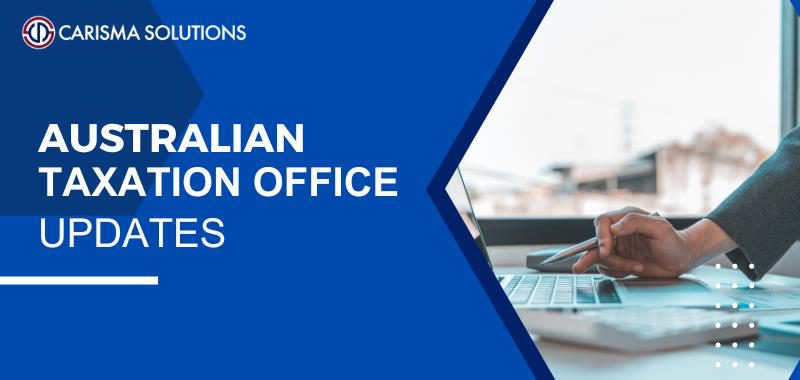The Australian Taxation Office (ATO) and the Institute of Public Accountants (IPA) have released important updates this month. From lodgment obligations for new SMSFs and ongoing consultation on Payday Super reforms to consequential amendments under the new Aged Care Act, these developments carry significant implications for trustees, employers, and practitioners. Here’s a quick overview of the latest changes.
1. New SMSF? Here’s what you need to do by 31 October
If you’re lodging your self-managed super fund annual return for the first time learn about your lodgment obligations.
If you have a new Self-Managed Super Fund (SMSF) you must lodge your SMSF Annual Return (SAR) by 31 October 2025.
Contact a registered tax agent as soon as possible if you need help preparing your SMSF annual return. This allows time for them to include you in their lodgment program, giving you until 28 February 2026 to lodge your first return.
However, some funds may still need to lodge by 31 October 2025, even with a tax agent so check your registration letter for details.
If your new fund had no assets in the first year it was registered you must either lodge a return not necessary form or cancel your SMSF registration if you no longer intend to operate the fund.
Remember each year, you must:
-
Prepare your fund’s accounts including valuing your funds’ assets
-
Appoint an approved SMSF auditor at least 45 days before your lodgment due date
-
Ensure the auditor has time to assess compliance and issue an independent report
-
Address any issues identified by the auditor
-
Lodge your annual return and pay any outstanding tax and the supervisory levy
For new SMSFs, the supervisory levy is $518, covering both the setup year and the following financial year.
Stay compliant—act early and seek professional support if needed.
2. Payday Super consultation continues
Updates are available on the Payday Super Working Group section of the ATO website.
The ATO is continuing to engage with industry and stakeholders on the Government’s Payday Super reform, proposed to commence from 1 July 2026.
Consultation updates are available on the Payday Super Working Group section of the ATO website.
Key proposed changes for Super Funds include:
-
Revisions to the choice of fund rules allowing employers to show an employee’s existing stapled fund to them as part of the onboarding process if they choose. The scope of this change will not make any changes to the existing ATO stapling service
-
Contributions will need to arrive in employees’ super funds within 7 calendar days of payments with an ordinary time earnings (OTE) component
-
Time to return an unallocated contribution to an employer will reduce to 3 days, down from 20
-
The SuperStream data and payment standards will be revised to allow payments made via the New Payments Platform and improve error messaging to ensure employers and intermediaries can quickly address errors
-
Enhancements to the Fund Validation Service which will support faster payments and better data through the system
-
Increased visibility of super guarantee contributions for the ATO to match employer Single Touch Payroll (STP) data and superannuation fund reporting
The Payday Super measure is not yet law. For more detail, check the Treasury factsheet or visit ato.gov.au/paydaysuper.
3. Aged Care amending Bill: consequential amendments
The IPA notes that the Government has introduced into the House of Reps the Aged Care and Other Legislation Amendment Bill 2025. It makes technical and consequential amendments to support the commencement of the Aged Care Act 2024 as the Commonwealth’s primary aged care legislation, replacing the Aged Care Act 1997, the Aged Care Quality and Safety Commission Act 2018 and the Aged Care (Transitional Provisions) Act 1997.
In terms of the ITAA 1997, the Bill will make changes to the wording in the Div 995 definitions of:
-
Approved residential home care
-
Flexible care
-
Funded aged care service
-
Residential care
-
Specialist aged care program
It also changes the wording in s 230-475(3).
Corresponding changes will be made to the GST Act, impacting the GST-free supply of:
-
Residential care (s 38-25)
-
Home care (s 38-30)
-
Flexible care (s 38-35)
The changes reflect the repeal of the former legislation and the updated concepts and terminology of the new legislation, and will not change the current GST treatment.
Source: Australian Taxation Office and Institute of Public Accountants
Need help navigating these updates?
Staying on top of ATO and IPA updates is vital for trustees, employers, and professionals alike. Whether it’s meeting SMSF lodgment deadlines, preparing for Payday Super changes, or understanding aged care legislation amendments, these insights ensure you remain compliant and well-prepared for the evolving regulatory landscape.
For More Information, Visit Our Website
Reach out to us at biz@carisma-solutions.com.au
Connect with us on our WhatsApp




